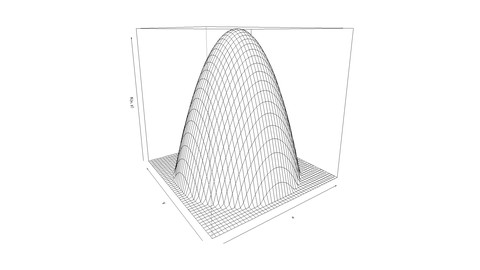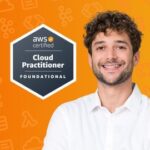
Essential Fundamentals of R
Essential Fundamentals of R, available at $34.99, has an average rating of 3.95, with 46 lectures, based on 185 reviews, and has 1815 subscribers.
You will learn about Install R and RStudio and engage in a basic R session Understand the characteristics of different data types and structures in R Be able to read in data and write out data files from various sources Sort, select, filter, subset, and manipulate tables of data in R Create and execute their own user-defined functions in an R session Understand how to use the apply() family of functions to execute various actions against different R data structures Know how to use reshaping and recoding "short cuts" for changing data types and for rearranging data structures. This course is ideal for individuals who are Anyone who is interested in learning to use R software who is relatively new (or 'brand new') to using R or People who wish to learn the essential fundamentals of using R including data types and structures, inputting and outputting data and files, writing user-defined functions, and manipulating data sets or College undergrads and/or graduate students who are looking for an alternative to using SAS or SPSS software or Professionals engaged in quantitative analyses and/or data analyses tasks who seek an alternative to using SAS and/or SPSS software. It is particularly useful for Anyone who is interested in learning to use R software who is relatively new (or 'brand new') to using R or People who wish to learn the essential fundamentals of using R including data types and structures, inputting and outputting data and files, writing user-defined functions, and manipulating data sets or College undergrads and/or graduate students who are looking for an alternative to using SAS or SPSS software or Professionals engaged in quantitative analyses and/or data analyses tasks who seek an alternative to using SAS and/or SPSS software.
Enroll now: Essential Fundamentals of R
Summary
Title: Essential Fundamentals of R
Price: $34.99
Average Rating: 3.95
Number of Lectures: 46
Number of Published Lectures: 46
Number of Curriculum Items: 46
Number of Published Curriculum Objects: 46
Original Price: $84.99
Quality Status: approved
Status: Live
What You Will Learn
- Install R and RStudio and engage in a basic R session
- Understand the characteristics of different data types and structures in R
- Be able to read in data and write out data files from various sources
- Sort, select, filter, subset, and manipulate tables of data in R
- Create and execute their own user-defined functions in an R session
- Understand how to use the apply() family of functions to execute various actions against different R data structures
- Know how to use reshaping and recoding "short cuts" for changing data types and for rearranging data structures.
Who Should Attend
- Anyone who is interested in learning to use R software who is relatively new (or 'brand new') to using R
- People who wish to learn the essential fundamentals of using R including data types and structures, inputting and outputting data and files, writing user-defined functions, and manipulating data sets
- College undergrads and/or graduate students who are looking for an alternative to using SAS or SPSS software
- Professionals engaged in quantitative analyses and/or data analyses tasks who seek an alternative to using SAS and/or SPSS software.
Target Audiences
- Anyone who is interested in learning to use R software who is relatively new (or 'brand new') to using R
- People who wish to learn the essential fundamentals of using R including data types and structures, inputting and outputting data and files, writing user-defined functions, and manipulating data sets
- College undergrads and/or graduate students who are looking for an alternative to using SAS or SPSS software
- Professionals engaged in quantitative analyses and/or data analyses tasks who seek an alternative to using SAS and/or SPSS software.
Essential Fundamentals of R is an integrated program that draws from a variety of introductory topics and courses to provide participants with a solid base of knowledge with which to use R software for any intended purpose. No statistical knowledge, programming knowledge, or experience with R software is necessary. Essential Fundamentals of R (7 sessions) covers those important introductory topics basic to using R functions and data objects for any purpose: installing R and RStudio; interactive versus batch use of R; reading data and datasets into R; essentials of scripting; getting help in R; primitive data types; important data structures; using functions in R; writing user-defined functions; the 'apply' family of functions in R; data set manipulation: and subsetting, and row and column selection. Most sessions present "hands-on" material that demonstrate the execution of R 'scripts' (sets of commands) and utilize many extended examples of R functions, applications, and packages for a variety of common purposes. RStudio, a popular, open source Integrated Development Environment (IDE) for developing and using R applications, is also utilized in the program, supplemented with R-based direct scripts (e.g. 'command-line prompts') when necessary.
Course Curriculum
Chapter 1: Introduction and Orientation
Lecture 1: Introduction to R Software
Lecture 2: What is R?
Lecture 3: Workspace Management Controls
Lecture 4: Workspace Management R Manuals
Lecture 5: Hands-On Tutorial of R Basics (part 1)
Lecture 6: Hands-On Tutorial of R Basics (part 2)
Lecture 7: Tutorial with R Functions
Lecture 8: Distributional Functions and Plotting
Chapter 2: Input and Output, Data and Data Structures
Lecture 1: Data Input and Output
Lecture 2: Accessing Data Sets in R
Lecture 3: Basic Data Structures (part 1)
Lecture 4: Basic Data Structures (part 2)
Lecture 5: Basic Data Structures (part 3)
Lecture 6: Manipulating Dataframes (part 1)
Lecture 7: Manipulating Dataframes (part 2)
Lecture 8: Input Output Exercises
Lecture 9: Dataframe Manipulation Exercises
Chapter 3: Manipulating Dataframes in Depth
Lecture 1: Input Output Exercises Solution
Lecture 2: Data Manipulation Exercise Solution
Lecture 3: Manipulating Dataframes (part 3)
Lecture 4: Manipulating Dataframes (part 4)
Lecture 5: Manipulating Dataframes (part 5)
Lecture 6: Manipulating Dataframes (part 6)
Chapter 4: User-Defined Functions in R
Lecture 1: Remaining Data Manipulation Exercises Solutions
Lecture 2: User-Defined Function Exercise and Finish Manipulating Dataframes
Lecture 3: Begin User-Defined Functions Demonstrations
Lecture 4: The 'Scope' of a Function
Lecture 5: Formal, Local and Free Parameters
Lecture 6: Flexible Arguments to Functions
Chapter 5: Writing Functions in R
Lecture 1: User-Defined Functions Exercise Solution
Lecture 2: More on User-Defined Functions
Lecture 3: Loops and Repeats
Lecture 4: Control Statements
Lecture 5: Returning Values from a Function
Lecture 6: Anonymous Functions
Chapter 6: The Apply Family of Functions
Lecture 1: Some Short Programs in R (part 1)
Lecture 2: Some Short Programs in R (part 2)
Lecture 3: The Apply family of Functions (part 1)
Lecture 4: The Apply Family of Functions (part 2)
Lecture 5: The Apply Family of Functions (part 3)
Lecture 6: Apply Functions Exercises
Chapter 7: Reshaping and Recoding Data
Lecture 1: Apply Functions Exercises Solutions
Lecture 2: The Reshape Package in R
Lecture 3: Recoding Data in R (part 1)
Lecture 4: Recoding Data in R (part 2)
Lecture 5: More Vector-Maker Exercises
Instructors
-
Geoffrey Hubona, Ph.D.
Associate Professor of MIS and Data Analytics
Rating Distribution
- 1 stars: 2 votes
- 2 stars: 7 votes
- 3 stars: 27 votes
- 4 stars: 78 votes
- 5 stars: 71 votes
Frequently Asked Questions
How long do I have access to the course materials?
You can view and review the lecture materials indefinitely, like an on-demand channel.
Can I take my courses with me wherever I go?
Definitely! If you have an internet connection, courses on Udemy are available on any device at any time. If you don’t have an internet connection, some instructors also let their students download course lectures. That’s up to the instructor though, so make sure you get on their good side!
You may also like
- Best Public Speaking Courses to Learn in March 2025
- Best Affiliate Marketing Courses to Learn in March 2025
- Best Email Marketing Courses to Learn in March 2025
- Best Social Media Management Courses to Learn in March 2025
- Best SEO Optimization Courses to Learn in March 2025
- Best Content Creation Courses to Learn in March 2025
- Best Game Development Courses to Learn in March 2025
- Best Software Testing Courses to Learn in March 2025
- Best Big Data Courses to Learn in March 2025
- Best Internet Of Things Courses to Learn in March 2025
- Best Quantum Computing Courses to Learn in March 2025
- Best Cloud Computing Courses to Learn in March 2025
- Best 3d Modeling Courses to Learn in March 2025
- Best Mobile App Development Courses to Learn in March 2025
- Best Graphic Design Courses to Learn in March 2025
- Best Videography Courses to Learn in March 2025
- Best Photography Courses to Learn in March 2025
- Best Language Learning Courses to Learn in March 2025
- Best Product Management Courses to Learn in March 2025
- Best Investing Courses to Learn in March 2025






















